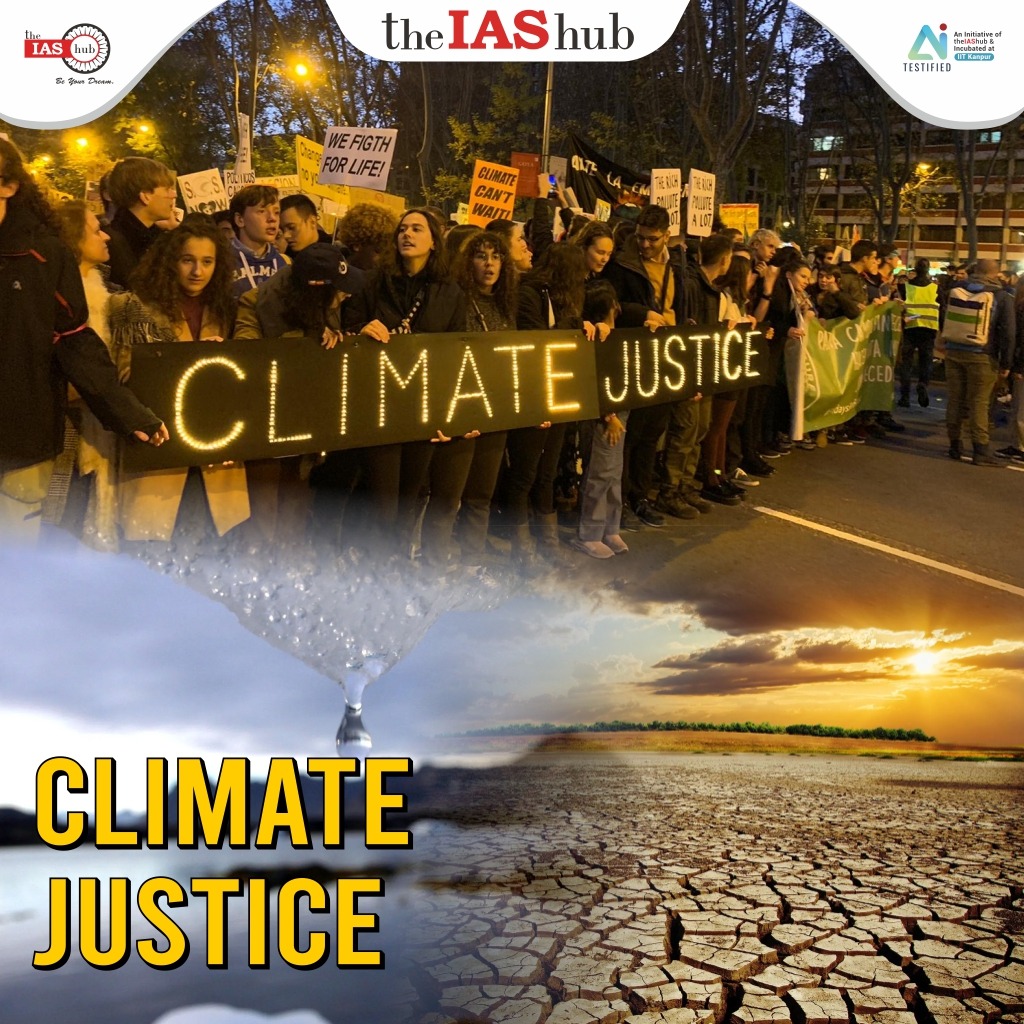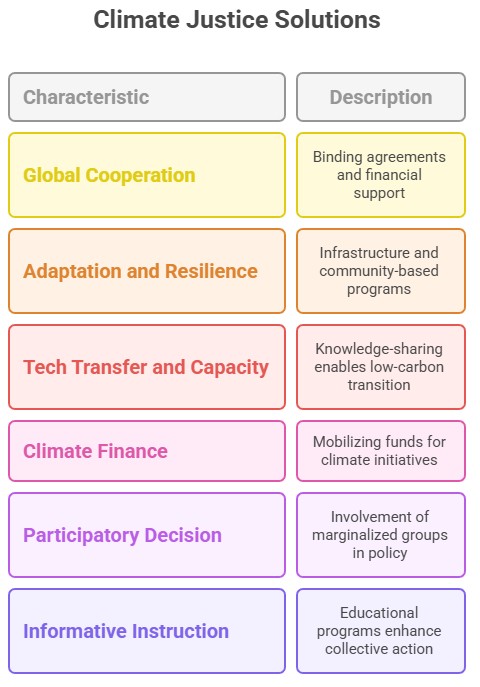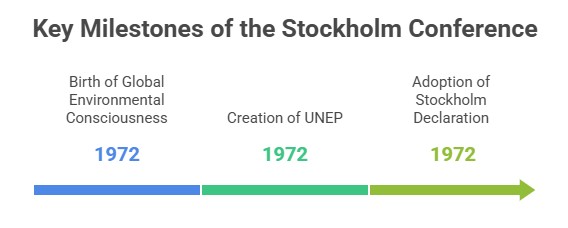Explore climate justice—its need, challenges, and global solutions like the Paris Agreement. Learn about climate-induced displacement, Bangladesh’s efforts, and 50 years of the Stockholm Conference shaping global sustainability and environmental policy.


"Climate change is not just an environmental issue; it's a matter of social justice human rights, and economic opportunity. We have a responsibility to act now, for the sake of future generations and the well-being of our planet." Ban Ki-moon,


As we move forward, embracing climate justice will empower us to create a world where the burdens of climate change are shared equitably, marginalized communities are uplifted, and sustainable practices flourish, fostering a future that is resilient, fair, and harmonious for all.
|
Extra Marks Fetching component by theIAShub Climate-induced Displacement in Bangladesh
|
50 Years of Stockholm ConferenceStockholm Conference marks 50 years of global environmental action, reflecting on achievements and paving the way for a sustainable future. The Stockholm Conference in 1972 laid the foundation for global environmental governance and sustainable development. Significance of the Stockholm Conference
 Challenges
Way forward
ConclusionThe Stockholm Conference's impact over 50 years highlights the need for sustainable development. Collaboration, innovation, and political will are crucial for a resilient future. Embracing green tech, circular economy, nature-based solutions, sustainable urbanization, innovative financing, digital monitoring and continued commitment from all stakeholders will be helpful in ensuring a sustainable future. |


Refine your answer writing skills and elevate your UPSC preparation with personalized support and expert feedback.
Fill out the form to get started with the program or any other enquiries !








Are you dreaming of becoming an IAS officer? Then, IAShub can be your best guide. It is one of the Best IAS Coaching in Delhi. Many students who want to clear the UPSC exam join IAShub for learning. The institute gives both online and offline classes. Their teachers are experienced and helpful. They easily explain every topic. Students also get notes, tests, and tips to do well in the exam.
IAShub is in Delhi and is trusted by many UPSC students. It offers coaching for every part of the UPSC exam – Prelims, Mains, and Interview. The classes are simple and easy to understand. The teachers are experts and guide students in the right way. IAShub is also known for its helpful notes, test series, and answer-writing practice. IAShub is the best coaching in Delhi and also gives UPSC Online Classes. This helps students from any place in India to learn. The online classes are live and also recorded. So, students can watch them anytime. These classes cover the full UPSC syllabus.
Here are some important services provided by IAShub:
The UPSC Civil Services Exam has three parts:
This exam is tough, but with the right guidance, it becomes easy to manage. Students must study smart and stay regular.
IAShub supports students from the beginning to the end. It gives the right books, tests, and notes. The classes are easy to follow, and the teachers are always ready to help. Students get personal doubt sessions too. The test series and answer checking help students learn where they need to do better. Also, free study materials save time and money.
IAShub also guides students during the final stage – the interview. Experts take mock interviews and give useful tips. This full support makes IAShub one of the best IAS coaching in Delhi.